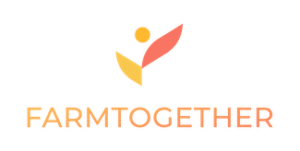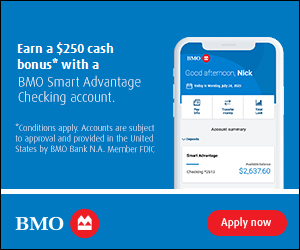
Pros
Potential for attractive returns and cash yields
FarmTogether does extensive due diligence and invests its own money
Low correlation with stocks and other asset classes
Cons
Only available to accredited investors
Limited liquidity
Investing in farmland carries risk
FarmTogether is a farmland investment manager that allows accredited investors to invest in fractional, sole ownership, or via their diversified sustainable farmland fund.
While the accreditation requirement puts FarmTogether out of reach — for now — for middle-income investors, FarmTogether is much more than a portfolio diversification play for the ultra-wealthy.
FarmTogether stands out from other farmland investment managers in other important ways. The FarmTogether team has more than 70 years of collective experience in finance and agriculture. This team only presents investors with opportunities it plans to invest its own funds in.
And, although past performance is not indicative of future results, FarmTogether targets investment opportunities that can offer capital gains returns between 6% and 13% with 2% to 9% annualized cash yields after fees.
Key Features of FarmTogether
FarmTogether is built with sophisticated investors in mind. It’s not a beginner-friendly online stockbroker or a low-minimum equity crowdfunding opportunity.
But these shortcomings, if you can call them that, make FarmTogether no less valuable for investors seeking exposure to an often-overlooked asset class — relative to other types of commercial real estate, at least — that’s not closely correlated with equity markets.
FarmTogether offers a predictable investment experience for accredited individual investors, corporate entities, wealth managers, and family offices. The FarmTogether team applies a standardized process to evaluate, purchase, solicit investments for, manage, and sell agricultural land.
Types of FarmTogether Investments
FarmTogether offers three types of investment options:
- Crowdfunded farmland offerings funded by multiple FarmTogether investors
- Shares in the Sustainable Farmland Fund, a diversified agricultural land portfolio
- Sole ownership bespoke offerings (assets wholly owned by single individuals, households, or entities)
The Sustainable Farmland Fund is the most accessible FarmTogether investment option, with minimum investments as low as $5,000 for Class I shares.
With investment minimums as low as $15,000, crowdfunded farmland offerings are close behind. However, they’re only eligible for tax-saving 1031 exchanges when investors commit at least $1 million to a single offering, putting them out of reach of lower-asset investors.
FarmTogether performs extensive due diligence on every opportunity and selects only those that meet stringent criteria — and that it’s willing to invest its own money in.
Rather than hold title to the farmland itself as one of dozens or hundreds of tenants-in-common, each investor purchases shares in a special purpose entity — an LLC — that directly owns the underlying farmland.
FarmTogether targets permanent crops such as tree nuts and citrus, in West Coast subregions with good water availability, high-quality soils, and proximity to FarmTogether’s preferred farm operator networks. The team also looks for other types of opportunities, including annual row crops such as corn, wheat, and soy east of the Rockies.
Two fully-committed offerings FarmTogether holds up as representative showcase this diversity: an organic apple orchard in central Washington and a corn and soybean farm in northwestern Illinois.
In either case, FarmTogether makes targeted investments to modernize and streamline its farms’ operations, employing sustainable farming practices wherever practical and deploying leverage where appropriate to boost returns.
Hold periods — the length of time FarmTogether plans to hold the asset — run 8 to 12 years for crowdfunded offerings. That’s a significant time commitment.
The Sustainable Farmland Fund is more liquid. It has a lockup period of 2 years from each share purchase, after which you can submit a redemption request. FarmTogether processes redemptions every quarter, within limits: no more than 2.5% of net asset value per quarter, or 10% of net asset value per year. So if lots of other investors want to redeem in the same quarter, your redemption attempt might fail.
Bespoke offerings are fully customizable, with hold periods, yields, and risk-return profiles at the discretion of the investor. They typically require a minimum investment of $1 million and are eligible for 1031 exchanges.
Individuals and Entities That Can Invest in FarmTogether Offerings
FarmTogether accepts investments from individuals and corporate entities that meet the U.S. Securities and Exchange Commission (SEC) definition of an accredited investor:
- Minimum income of $200,000 for individuals and $300,000 for couples in the past two years with expected future income at similar or higher levels, OR
- Minimum assets (net worth) of $1 million for individuals or couples, OR
- Minimum assets of $1 million for eligible business entities
Investors can fund and hold their investments through individual entities, pension funds, IRAs, solo 401(k) accounts, and other eligible vehicles.
Price Appreciation (Returns) and Cash Yields
FarmTogether targets investment opportunities with the potential to produce annualized price appreciation (capital returns or IRR) between 6% and 13% and cash yields between 2% and 9%, all net of fees. Investors typically receive cash distributions on a quarterly, semiannual, or annual basis via direct deposit.
FarmTogether fees vary by opportunity, but the platform strives to keep them below the sector average. FarmTogether outlines each investment opportunity’s fees and potential risks on the offer page in plain English.
Reporting and Tax Forms
FarmTogether’s secure investor portal helps investors track the performance of their assets over time and includes annual tax forms such as K-1s that investors need to report cash distributions and capital gains.
FarmTogether’s Farmland Acquisition Process
FarmTogether’s data-science-driven sourcing platform helps the team identify attractive off-market properties.
FarmTogether also leverages a broad network of agriculture professionals and digital sourcing partners for help identifying both on- and off-market acquisition opportunities.
FarmTogether investors aren’t directly involved in the acquisition process, but it’s worth understanding in general terms how it works. Per FarmTogether, the process unfolds as follows:
- Lead Identified. A farm is identified that is within FarmTogether’s target geography and crop ‘buy box’.
- Initial Call. FarmTogether connects with the landowner to discuss the property.
- Property Assessment. The investment team leverages its industry expertise and Terra — FarmTogether’s AI-powered farmland underwriting engine — to examine the farm’s fundamentals, including water availability, yield potential, and appreciation prospects. If the farm appears to be a good fit for FarmTogether and its investors, the team schedules a site visit.
- Offer and Contract. FarmTogether designs a sales offer that meets the landowners’ needs. The parties agree on the deal’s terms and enter into a sales contract.
- Due Diligence. FarmTogether conducts thorough due diligence, completing a title search, confirming water rights, ensuring the property complies with all applicable state and federal environmental regulations, conducting industry analysis, testing soil and water quality, and more. FarmTogether’s investment team is agile, leveraging technology to cut through the red tape typically associated with large institutional land investors.
- Escrow and Closing. If no problems arise during due diligence, the sale closes. The former owners receive the sale proceeds and FarmTogether prepares to offer the property to its investors.
Advantages of FarmTogether
FarmTogether’s biggest advantages over other real estate investment managers include:
1. FarmTogether Invests Its Own Money in Properties Offered for Investment
FarmTogether puts its money where its mouth is. That is, it only presents investors with opportunities that FarmTogether itself is willing to invest in. That should assuage any concerns that FarmTogether is more concerned about deal flow than deal quality.
2. Attractive Returns
FarmTogether targets investments with annual returns between 6% and 13%, net of fees. This is roughly in line with long-term average stock market returns, if not a bit better.
3. Generous Cash Yields
FarmTogether targets investments with strong cash flows that produce annual cash yields between 2% and 9%, net of fees. Even at the low end of this range, this is significantly higher than returns on long-term cash investments like bonds and CDs.
4. Yields and Returns May Not Be Closely Correlated With Other Asset Classes
Because yields and returns on agricultural real estate holdings may not correlate closely with other asset classes, such as stocks and precious metals, FarmTogether is a useful tool for sophisticated investors looking to diversify their investment portfolios.
5. Transparent, Plain-English Investment Risk and Fee Summaries
FarmTogether describes its investment offerings clearly and in plain English describe annual management fees and potential risks. FarmTogether’s FAQs have great amounts of plain-English detail on general investing risks as well.
This is a refreshing change from the dense or outright inscrutable investment materials you’ll find elsewhere.
6. FarmTogether Investments Are 100% Passive Income
FarmTogether uses a network of preferred on-the-ground partners to manage its agricultural holdings, absolving investors of any day-to-day responsibility for their stewardship.
Likewise, although prospective investors should always perform their own due diligence, FarmTogether assumes responsibility for the painstaking, time-consuming work of vetting potential opportunities.
The result: an entirely passive investment experience for FarmTogether participants.
7. FarmTogether May Support 1031 Exchanges
Certain FarmTogether investors and investments may be eligible for 1031 exchanges. The rules around these tax-saving maneuvers are complicated and situation-specific, so refer to FarmTogether’s FAQs and consult your tax advisor before proceeding.
8. FarmTogether Accepts Investments From Corporate Entities and Pensions
FarmTogether isn’t only for individuals. Eligible corporate entities like LLCs and partnerships can invest in its offerings, as can individuals using funds held in their pension accounts.
See FarmTogether’s FAQs for more details on the rules governing these types of investments.
Disadvantagesof FarmTogether
FarmTogether’s biggest downsides include:
1. Only Available to Accredited Investors
FarmTogether is only available to accredited investors, which the SEC defines as individuals earning at least $200,000 or couples earning at least $300,000, individuals or couples with assets in excess of $1 million, or business entities with assets in excess of $5 million.
Most Americans don’t qualify as accredited investors, so participation in FarmTogether is inherently limited.
2. Limited Liquidity
Farmland is best treated as a long-term investment. While you can request a redemption of your Sustainable Farmland Fund 2 years after your purchase, FarmTogether’s ability to honor your request depends on how many other investors want to redeem at the same time. Meanwhile, crowdfunding investments have hold periods from 8 to 12 years.
3. Investing in Farmland Carries Substantial Risk
FarmTogether’s FAQs leave no illusions about the risks inherent in its offerings. Its answer to the question, “Are investments on FarmTogether risky?” reads, in part:
“As an investor, you must be prepared for the potential loss of all of your investment. Please review the risks under the associated disclosure documents. If the potential loss will render you unable to survive financially, or you are unwilling to accept the potential loss of capital you have invested, we do not recommend you invest with us, or anyone else.”
This isn’t a reason not to invest with FarmTogether — only a reminder to carefully consider your own tolerance for risk and financial position before doing so.
Final Word
FarmTogether has a role to play in virtually any sophisticated, well-capitalized investor’s alternative investment portfolio.
With cash yields far higher than even the best high-yield savings accounts and the promise —although not the guarantee — of long-term capital returns that beat the stock market, that role could well be lucrative.
Beyond the potential for above-average yields and returns, FarmTogether offers something that could be even more important for investors with long time horizons: diversification. You don’t have to understand the difference between a harrow and a seed drill to grasp the value of effective risk management.

Pros
Potential for attractive returns and cash yields
FarmTogether does extensive due diligence and invests its own money
Low correlation with stocks and other asset classes
Cons
Only available to accredited investors
Limited liquidity
Investing in farmland carries risk


